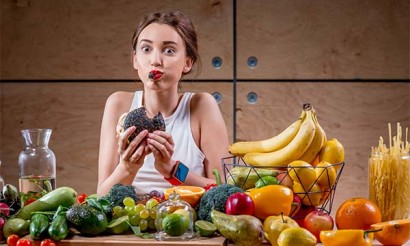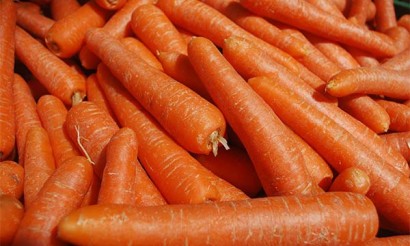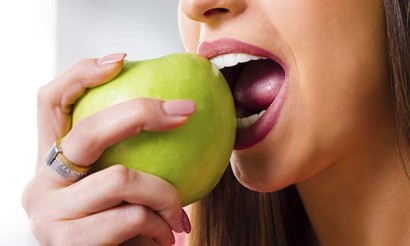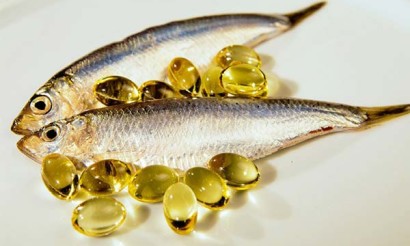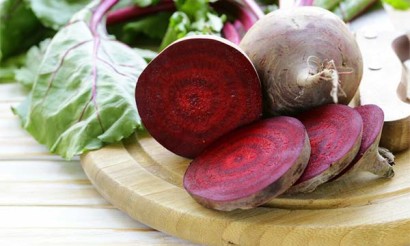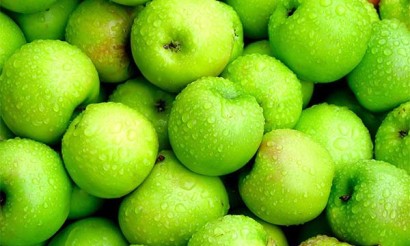Peanuts in pregnancy: benefits and harms
- Is it possible to eat peanuts during pregnancy
- In the 1st trimester
- 2nd trimester
- In the 3rd trimester
- How to eat peanuts correctly
- How much can I eat per day?
- Can I Eat a Peanut at Night and on an empty stomach?
- Can I Eat with the Peanut Peel?
- Do I Wash Peanuts Before Eating?
- The Benefits of Peanuts during Pregnancy
- What is healthier to eat peanuts: raw or roasted?
- Can Pregnant Women Eat Peanut Urbech
- Can peanuts harm an expectant mother?
For women in the position of the main thing in life becomes the responsibility for the health of her unborn child. Therefore, with special scrupulousness and even meticulousness she studies every foodstuff - whether it is useful or not, and if it is, how much of it can be eaten, so as not to overdo it and not to harm either the baby or herself.
Peanuts also necessarily draws attention, because it is a product that is traditionally liked by almost everyone. The future mother faces a dilemma: can it still be consumed, or is it better to give it up? After all, peanuts are not a nut by nature, although everyone only calls it that, sometimes adding the clarification - earthy. In fact, it is an oil-bearing leguminous crop, therefore, like other products of this kind, it is, on the one hand, able to arrange a very unpleasant bubbling in the stomach and bloating, but on the other hand - has a very rich nutrient composition. What to do? To eat or not to eat?
Can I eat peanuts during pregnancy?
The peanut contains many important and necessary substances. Therefore, women who are expecting a child can eat peanuts, but with a number of restrictions, the severity of which depends on the period of pregnancy.
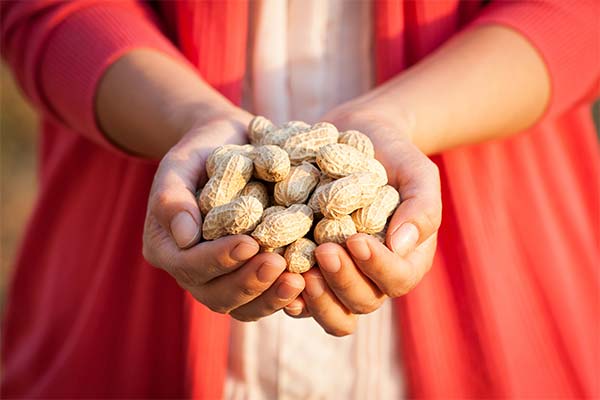
In the 1st trimester
The first trimester is the most responsible period for the life of the future child, as during this period all of its organs and systems are being laid and begin to develop. How and what the mother eats depends on the state of blood vessels, bones, heart, liver and nervous system of the baby. And the body of the expectant mother during this period is undergoing a serious restructuring. Toxicosis begins, accompanied by nausea and vomiting, which women often relieve with a pickle or tomato.
You can also significantly lessen the symptoms of toxicity by eating a small handful of salted peanut kernels - not much, just a few pieces. If a large amount is consumed, salt will begin to show its negative effect (increased load on the kidneys, edema), and the effectiveness of peanuts will decrease. So in the first trimester peanuts are quite acceptable daily, but within reasonable limits.
There is one condition: the future mother should pay attention if peanuts make her skin rash or itch. They can indicate that the product is contraindicated. Therefore, you will have to give it up and prefer homemade pickles to pacify toxicosis.
In the 2nd trimester.
The baby continues to develop rapidly, by this time his bones are already formed, he begins to move, metabolic processes are launched in the tiny body. At this stage peanuts are useful because they contain vitamin B, or as it is often called, folic acid, which is very good for the prevention of abnormalities in the development of the neural tube of the embryo.
In addition, thanks to the presence of iron, peanuts will help expectant mothers to prevent anemia, which often develops in pregnant women during this period.
However, it is not recommended to eat nuts every day. If there are no allergic manifestations, it will be enough to eat the product 2-3 times a week to saturate the woman's body with the necessary substances. In any case, in the first place it is better to consult a doctor, which supervises the pregnancy. Based on the data of tests and a picture of the course of pregnancy, perhaps he will consider that and this norm is a little high.
In the 3rd trimester
Doctors do not recommend that women eat peanuts at all during the later stages of pregnancy. During this period, the baby's body is fully formed and it begins to grow actively. The mother is equally active in gaining weight. That is why in the final trimester there is a high probability of gaining extra pounds, and caloric peanuts can contribute to this.
In addition, according to the laws of physiology in this period a woman begins to have problems with stools, constipation is not uncommon, and here peanuts can serve a bad service, worsening the situation.
The only case in which it is allowed to eat about five peanuts a day is painful night cramps of the calf muscles, which are usually caused by a lack of potassium and magnesium. The body of a pregnant woman has an increased need for these substances, and peanuts can help calm cramping attacks. But a doctor's consultation before consuming peanuts is mandatory. The doctor may think that taking vitamins is more useful and timely.
However, if a woman has no problems with excess weight, in the last week before childbirth is allowed to eat a couple of times for about 10 peanuts. This way, the doctors say, after childbirth, the mother's milk will come up faster.
How to consume peanuts correctly
Peanuts, or groundnut, is a caloric, allergenic product, and also differs by the presence of a large amount of fat. That's why it is better to eat it in the first half of the day, so that in the evening the calories are burned and the nutrients have time to be absorbed. And it is worth using it not whole nuts, and crumble, for example, in a salad, porridge, add to dishes with chicken or bake homemade muffins, cookies and rolls with it.
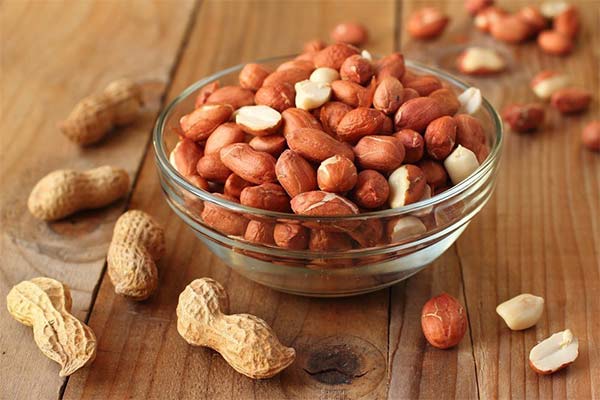
Nuts can be roasted or well dried. After heat treatment it will be easier to remove the red-brown husks, and the product itself will be safer and easier to digest.
Women during pregnancy should not consume salted peanuts, because salt promotes the accumulation of fluid in the body, which entails the appearance of edema, to which future mothers are very prone. And chocolate-covered peanuts become even more caloric, so it is also better not to eat such a product.
Prepackaged peanuts with various additives for improving taste should not be bought: it is unknown how these impurities affect the baby, and the future mother, whose body is working with increased stress, does not need such experiments.
Dried peanuts are also better left on the counter, even if later it is planned to be washed and fried: in such a product for sure already settled mold, which can seriously harm the health of the pregnant woman and the baby.
How much you can eat per day
Since peanuts belong to the allergenic products, physicians strongly advise women during pregnancy to be very careful with its consumption. Because of the intolerance of peanuts, a rash, swelling, a debilitating cough may occur.
If earlier, before pregnancy, a woman had a similar reaction to peanuts, then while waiting for the baby, you should forget about them. If there were no negative manifestations before, you can try very carefully to see if the situation has changed. To start it is allowed to eat a couple of kernels and observe yourself. All is well? Then it is allowed to accurately, gradually increase the daily rate and bring it to 15-20 nuts per day.
But even if the body copes with peanuts and does not protest against them with an allergic response, you should not eat the product often. This can cause allergens to accumulate in the body over time, and since the immune system works harder while you are carrying the baby, and the body takes peanut protein as a dangerous substance, the result is an adverse reaction in the form of allergies.
That is why in the second trimester it is not recommended to eat peanuts more than 3 times a week, and in the third trimester it is better to give them up altogether.
Is it possible to eat at night and on an empty stomach?
The body of the future mother should have a good rest at night, instead of digesting food. All organs at this time of the day are asleep and work in a supportive mode, so it is difficult for the digestive system to cope with such a load as peanuts. The pancreas, being in a sluggish state, does not secrete enough enzymes, and the 12 duodenum is also asleep and unwilling to move the peanuts further. Because of the weak activity of the gallbladder, bile stagnation and stone formation are possible. In the intestines of pregnant women, peanuts begin to ferment, which is accompanied by the release of toxins, which after absorption into the blood cause flatulence and heaviness in the stomach, weakness and malaise, stomach upset and constipation.
In addition, any bedtime meal, especially such a caloric meal as peanuts, causes overweight and obesity. That is why you should not eat peanuts at night; if you really want to, it is better to do it a few hours before you go to sleep.
For consumption on an empty stomach, peanuts are also not suitable. They are too coarse for the first meal, because they can hurt the stomach and cause mechanical damage. To "wake up" the digestive tract and not to hurt the mucous membrane of the stomach, the first meal of the morning should be a soft dish, preferably enveloping - porridge or soft cottage cheese. Especially pregnant women prone to gastritis or ulcers of the gastrointestinal tract should keep this in mind.
Is it possible to eat with the husk
Medics have not established any bans on the consumption of peanuts with the husk. The main thing is to clean it from the dense shells. The red-brown husk tastes a bit bitter, but it is not harmful for pregnant women, unless they suffer from allergies. It is the husk that accumulates most of the ingredients that cause allergic reactions. However, it also concentrates most of the components that improve the body's immune system, it even makes pharmaceutical drugs aimed at supporting the immune system. Therefore, those future mothers who are not familiar with allergies, the husk will even benefit.
The main thing is not to hurry while eating, otherwise you can choke on the dry thin husk.
Do I have to wash peanuts before eating them?
Peanuts, just like all other nuts, must be washed regardless of whether they are peanuts in the shell or peeled. After all, they grow in the ground and are therefore dirty - not just in soil residue, but they are probably infested with bacteria and worm eggs. In addition, to increase shelf life and prevent damage from pests such as food moths, the manufacturer may treat peanuts with some chemicals.
The exception is ready-to-eat store-bought peanuts roasted with oil and salt and packaged in airtight bags.
When the peanuts are few, you can put them in a colander and rinse them under running water, turning them and rubbing them with your fingers to get away all the bits of earth stuck to them. If you have a lot of peanuts, it is better to pour them into a bowl or bucket, pour water on them, turn them a little and let them stand for a couple of minutes. Then rub the peanuts directly in the water, taking them in large handfuls, then drain the dirty water and fill the container with clean water. Repeat the procedure: twist and rub. If the shell is very dirty and you can see particles of earth sticking to it, you can rub the nuts with the hard side of a dishwashing sponge. Drain the water again and fill for the third time, for rinsing.
When the water is drained off, the peanuts should be thoroughly dried and only then allowed for further processing.
With peanuts peeled easier - for them twice rinsing is enough, then you can carefully drain the water and send it to the frying pan to dry and at the same time to fry.
The benefits of peanuts in pregnancy
Groundnut is a nutritious and caloric product, it quickly satisfies hunger, as it contains 25% proteins and about 45% of fats.
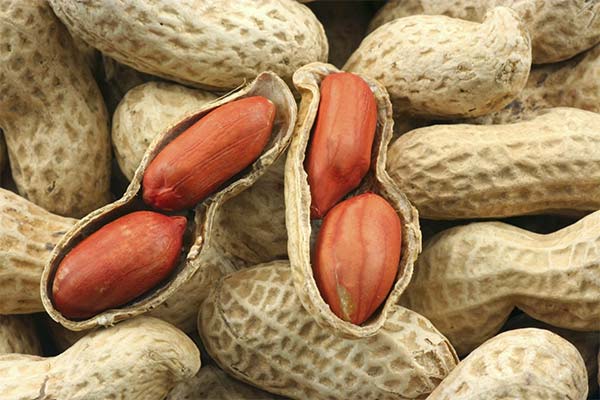
Due to the content of polyunsaturated fatty acids, peanuts are a good source of energy, optimally nourishing all tissues of the maternal body. Due to this, peanuts can improve the work of the heart muscle, which is especially useful for pregnant women during the period of increased stress on the cardiovascular system.
Polyphenols, which are components of peanuts, also help the future mother to keep the heart working. In addition, these compounds are characterized by antioxidant qualities, allowing to protect the body of the woman and the baby from the harmful effects of the external environment and bad ecology.
And thanks to the optimal combination of amino acids, which in peanuts there are two dozen, the product not only protects the mother from colds and controls her health in the long run, reducing the concentration of harmful cholesterol, but also brings in order the nervous system and restores sleep. In addition, the amino acid tryptophan, which is present in the chemical composition of nuts, stimulates the production of the "hormone of happiness" - serotonin, which is responsible for raising the mood, suppressing depressed moods. This problem is urgent for women in pregnancy, since nervousness, increased excitability or even depression are not uncommon during pregnancy.
Peanuts also contain an extensive vitamin complex, which includes vitamins A, D, E, K, PP, as well as group B. In general, they resist avitaminosis, and nuts can saturate the body of the mother in this difficult period for her, to give her immune system additional strength, as well as to feed the unborn baby with useful substances.
- For example, vitamin B1, or thiamine in another way, will ensure the smooth functioning of the digestive and central nervous system of women, as well as the viability of blood vessels and heart.
- Riboflavin makes the skin supple and prevents the appearance of stretch marks, protects the mucous membranes from injury. It is necessary not only for the expectant mother, but also for the full development of the embryo.
- Vitamin B9, better known to pregnant women as folic acid, is an essential product because it is required for the correct formation of the neural tube of the fetus and the subsequent stages of pregnancy without abnormalities developed brain and central nervous system.
- Nicotinic acid, or vitamin PP, is needed to keep the digestive tract in order.
- Vitamin D is responsible for the normal absorption of ascorbic acid, magnesium, as well as calcium and phosphorus, thus preventing the appearance of rickets in the baby.
- Tocopherol is generally called a progeny-bearing vitamin (this is how its second name is translated from the Greek). It is essential for the growth and development of the fetus, and its deficiency can provoke the intrauterine death of the embryo.
- Iron in peanuts is a regulator of the concentration and availability of hemoglobin, as well as a means of preventing anemia.
- Potassium is actively involved in organizing the work of the heart, it controls blood pressure and fluid availability in the body of a pregnant woman.
- Manganese supports the thyroid gland, which affects the course of pregnancy in general, as well as the condition of the hair, skin and nervous system of the expectant mother.
- Magnesium is necessary for women for normal functioning of the nervous system, eliminating cramps, reducing the negative effects of stress and establishing normal sleep.
- Zinc helps in the synthesis of serotonin and normalization of metabolism, and also takes part in the construction of proteins in the mother's body.
- Phosphorus is a substance that organizes all motor activity of both mother and fetus, and also stimulates the formation of compounds involved in the formation of the brain membranes of the fetus.
In general, peanuts are useful for pregnant women because it helps them to resist toxicosis, relieves muscle cramps, removes harmful substances and toxins from the body, improves hemoglobin, heart and vascular function, increases the elasticity of the skin, preventing the appearance of stretch marks, raises the mood, sets a positive psycho-emotional background and protects against stress.
Which peanut is healthier: raw or roasted
Roasted peanuts are much preferable to raw peanuts for pregnant women.
- First, it tastes better and therefore will give the expectant mother much more pleasure.
- Secondly, it is much safer than raw peanuts. We should not forget that peanut pods grow under the ground, and from it with a high degree of probability the nuts can pass bacteria and even helminth eggs. In addition, when unroasted peanuts are stored, fungus and mold multiply on them. Under the influence of high temperature in the roasting process all these harmful microorganisms are destroyed.
- Thirdly, it is much easier to remove the brown shell from roasted kernels, which concentrates a lot of allergens.
- Fourthly, raw peanuts are difficult for the digestive tract to digest, and can even cause diarrhea in the expectant mother.
So it is better not to risk, and if you really want to eat something, you can allow yourself a few pieces of fried product.
Can pregnant women eat peanut urbache?
Urbech is a delicacy similar to nut paste. This tasty product comes from the national cuisine of Dagestan. It is prepared only from natural ingredients, without the use of preservatives or dyes, and its base are either seeds or any nuts, including peanut urbeche.
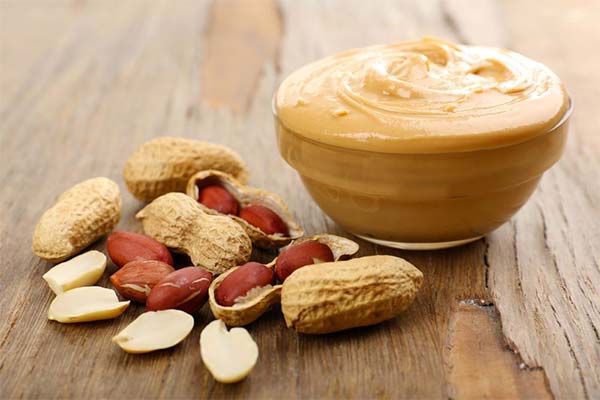
This delicacy is not only tasty, but also useful. Because of its rich composition it has long been considered a remedy capable of performing miracles and quickly restoring the feet of those recovering from serious illness. Urbech contains minerals and vitamin complexes, amino acids, iodine, iron, taurine, biotin, fiber. Many generations of native Dagestanis have been convinced of the product's miraculous abilities through their own experience.
It has been proven that Urbech enhances immunity, relieves inflammation of the throat and helps to cope with an annoying cough, in particular, it is useful for colds and bronchitis. And this is especially valuable for women in the position, when you can not take many medicines, so as not to harm the health of the unborn child.
It is also recommended as a means to strengthen blood vessels, which has a positive effect on the blood supply to the placenta and oxygen to the baby.
Given that women during pregnancy need significantly more vitamins than before it, urbache can be a tasty source of them, it is enough to eat just two teaspoons. Such a daily norm will help reduce the risk of developing pathologies in the unborn child.
It is easy to prepare a natural healthy nutritious product yourself. For this you need to fry a glass of raw peanuts, remove the brown shell from each kernel and use a blender to grind until it becomes an oily pulp. That's all, the dessert is ready! If you want, you can add a spoonful of good vegetable oil, so that the viscous mass does not stick to your teeth. But this is not necessary at all.
It is possible to eat urbeche with the addition of cane sugar, honey or dried fruits crushed with a knife. You should not get carried away with this delicious delicacy; only two or three teaspoons a day will be enough to lift your spirits and give you strength.
And it should be borne in mind that groundnut Urbech is quite allergenic, and in combination with similarly allergenic honey is especially dangerous. Therefore, if a pregnant woman has a tendency to it, it is necessary to refuse to use the dainty.
However, before trying the tasty product, it is better for the future mother to consult with the doctor leading the pregnancy.
Can peanuts harm the future mother
Of course, there are such a useful product as peanuts, and minuses. And the pregnant woman should certainly take them into consideration, in order not to harm herself and the future baby.
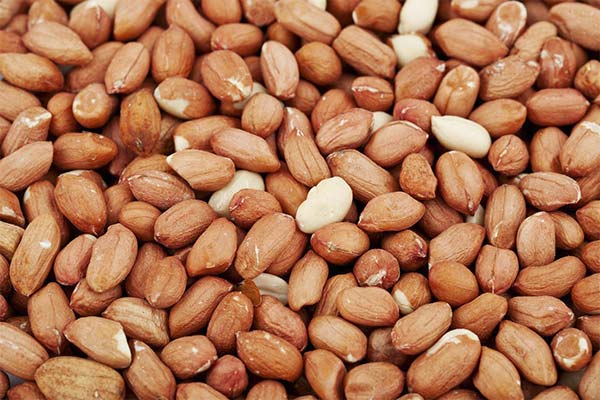
Peanuts are quite high-calorie products, in 100 grams of raw peanuts there are 551 kcal. Roasted peanuts are even higher - 626 kcal. If you eat a lot of it, it threatens to overweight both the mother and the fetus, which can lead to difficult childbirth. For the same reason, because of its high caloric content, peanuts should not be consumed by pregnant women who are prone to obesity.
And because of the high fat content of the nut is digested slowly, which can cause the expectant mother abdominal bloating and constipation, as well as exacerbation of diseases of the digestive system, such as gastritis and ulcers. Because of increased gas production, the intestines increase in size and begin to press on the uterus, which may result in involuntary contractions and early premature birth. The vessels of the abdominal cavity also become compressed, and this is fraught with the development of varicose veins and, consequently, the deterioration of the blood supply to the fetus and its hypoxia.
In addition, the salted kernels, on the one hand, help to cope with such a manifestation of toxicosis as nausea, on the other hand, when consumed in excess, they have a negative impact on the kidneys and contribute to edema because salt tends to retain water in the body.
Peanuts have one more serious disadvantage: doctors warn that too much peanuts in the menu of pregnant women can cause atopic dermatitis in the baby when he is born. This very difficult-to-treat disease is characterized by rash on the cheeks, forehead and on the butt "plaques", pestering the child with itching, which makes the baby behave very restlessly, sleep badly and eat without appetite.
In addition, the product is absolutely contraindicated to women if she, her spouse and their closest relatives - parents - have ever had an allergic reaction to peanuts - such as skin itching, swelling and respiratory problems. In this case, if the mother eats peanuts, the risk of developing allergies in the child is over 70 percent, which is very dangerous for the baby, up to and including anaphylactic shock.
At excessive consumption of peanuts, harmful erucic acid begins to accumulate in the tissues of the liver, which causes the organ to malfunction. Therefore, if a pregnant woman's blood test shows abnormal liver function, it is wise to remove peanuts from the diet, so as not to harm the liver even more.
Doctors do not recommend consuming peanuts in pregnant women suffering from gout, arthritis or arthrosis, as well as those diagnosed with diabetes. In addition, expectant mothers with low blood pressure should be wary of peanuts.
«Important: All information on this site is provided for informational purposes only purposes only. Before applying any recommendations, consult a health care professional. specialist. Neither the editors nor the authors shall be liable for any possible harm caused by materials."

